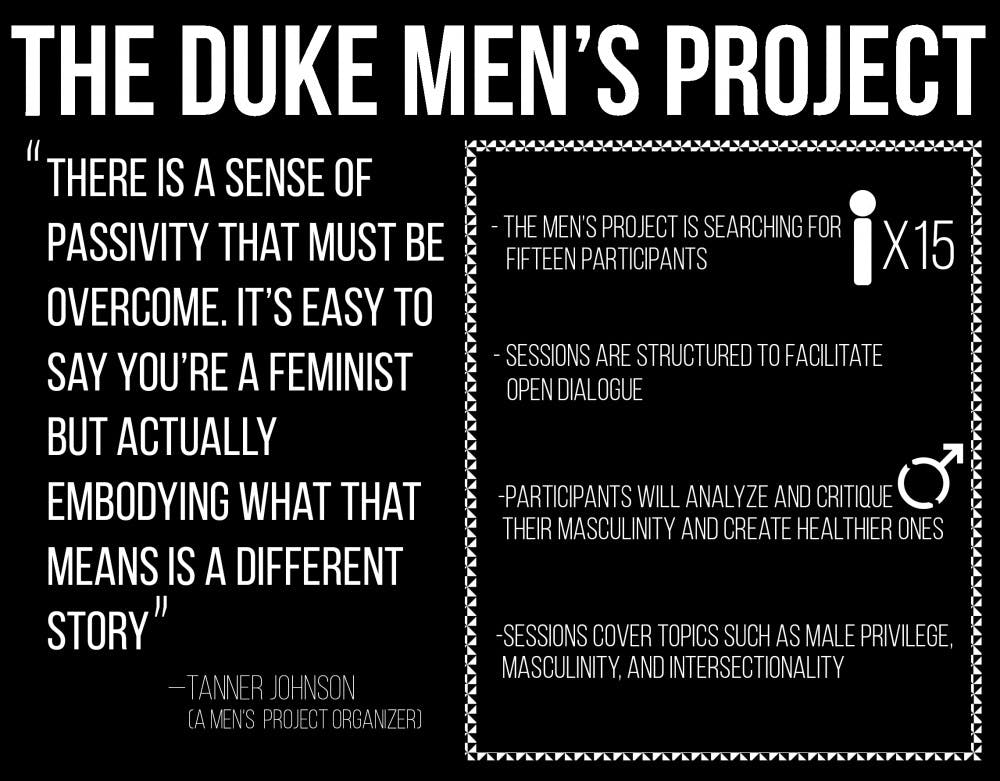The Women’s Center is launching a new initiative focused on redefining masculinity for Duke men.
The Duke Men’s Project is a nine-week long, storytelling-based program starting Wednesday that aims to discuss masculinity, feminism and intersectionality. It hopes to “create a space of brotherhood fellowship dedicated to interrogating male privilege and patriarchy,” according to its Facebook page. The leadership team consists of four Duke students—senior Conor Smith and juniors Tanner Johnson, Alex Bressler and Dipro Bhowmik.
“There is a sense of passivity that must be overcome,” Johnson said. “It’s easy to say you’re a feminist but actually embodying what that means is a different story—it’s changing how you see the world, straying away from the savior complex that you get assigned from other people and recognizing that the labor we put in really pales in comparison to the labor all the other women have put in to this movement.”
The program consists of a nine-week curriculum in which a group of male-identified students meet weekly to discuss themes and learning objectives planned by the leadership team, Bhowmik explained.
“[The goal of the initiative is to] critique and analyze their own masculinity and toxic masculinities to then create healthier ones,” he said.
Senior Andrew Tan-Delli Cicchi, who worked as an intern at the Women’s Center last year, created the Duke Men’s Project based on a similar curriculum at University of North Carolina at Chapel Hill.
The sessions will cover a wide range of topics including male privilege, masculinity and the language of dominance, sexuality and gender diversity as well as intersectional feminism.
Johnson explained that the members of the leadership team will act as facilitators, outlining topics of discussion and learning objectives ahead of time. However, the structure of the sessions is not meant to be rigid and strictly guided, but rather to facilitate an open dialogue.
“[The curriculum is about] questioning how you can be accountable to feminism, to the women in your life and to the larger community,” Bhowmik said.
Smith noted that he hopes the program will help participants undergo a process of “deconstruction and reconstruction.”
In addition to the learning groups, the Duke Men’s Project will organize monthly external events that will be open to all genders. Bhowmik emphasized that the curriculum is very much about building accountability.
Bressler said the leadership team wants the Duke Men’s Project to create a “very intentionally educational space for male-identified individuals.”
In order to reach the male-identified individuals they are hoping to attract, the Duke Men’s Project’s leadership team used Facebook and email listservs and also reached out to friends within their smaller personal communities on campus. Smith explained that they are aiming for roughly 15 participants.
He noted that developing the Duke Men’s Project has been a rewarding process for the team, as they become more aware of others on campus who want to engage in these discussions.
“I’m excited that we are doing our own part to proactively deconstruct masculinity,” Bressler said. “But we also must remember that we owe a lot to the feminist work that was already occurring on campus.”

